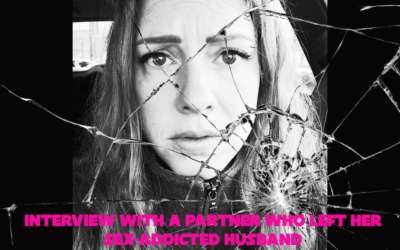THE BEHAVIOR IS ALWAYS THE SYMPTOM
-
Just stopping your behavior is not enough
-
There is an underlying cause for your behavior that needs to be addressed
- Yoga and Mindfulness can help address this underlying cause and bring complete freedom
Podcast Transcript (edited)
Today, I want to start with a story.
This guy named Chris called me. He was REALLY struggling But he had already developed a plan; he was planning to do 90 meetings in 90 days. For those of you familiar with the 12-step model, one of their recommendations is that upon the realization that you are addicted, you should attend 90 of their meetings in 90 days.
Now, there are a there are a number of shortcomings to that model, which I have discussed in another podcast and blogpost.
So, I proposed something different.
I encouraged him to do 90 yoga classes in 90 days.
Just Stopping Isn’t Enough
When I shared this story on Facebook and Twitter, I was virtually attacked by adherence to the 12-step model; you wouldn’t believe some of things that were said to me. How dare I challenge this model! Some said that I was actually doing harm. Their responses is a symptom that our society has been conditioned to believe that the disease-based model is the only one that can cure a person from addiction.
But that belief is completely wrong!
Need more evidence? Go back and read my post and listen to my podcast where I discuss the problems with the disease-based model.
Here’s the thing: when you use the words ‘sex addiction’ that implies that you are ‘addicted’ to something. But, that ‘something’ is always a symptom of a problem.
That’s right: Your addiction is a symptom. It’s never the root cause. So, how about we work on that.
When you say that it’s a ‘sex addiction,’ just not doing ‘the thing’ is your cure, right?
No!
You know better than that!
You know that you’re not well when you’re just not doing the thing. If you don’t identify and correct the root cause, that is, the underlying belief systems that are producing this coping strategy, you’re never going to be free.
The opposite of addiction isn’t sobriety.
The opposite of addiction is connection.
Love.
The common denominator of every single addict that I’ve worked with is lack of love for self.
We Need To Do More Than Stop
People are losing their lives to addiction every single day. Our culture is stuck in an antiquated model that hasn’t changed. Many people in the 12 Step Program, like the founder of the program itself, end up simply substituting their addiction to one thing for an addiction to another thing.
“I beat my addiction to alcohol, and now I’m addicted to sex.”
You haven’t beat anything. You may have stopped doing ‘the thing,’ but the same root causes that were driving that behavior are now driving you to do another ‘thing.’ To be truly free, we need another path.
We have to find other ways to heal.
And yes, yoga is another way. You can heal your addiction and change your life with yoga. Yoga had an incredibly powerful impact on my life.
Not long ago, I was driving to teach my yoga class and I realized that I was going to yoga for myself – not for anyone else. I think this was the first time in my life that I felt like I was doing something just for me. It was such an overwhelming experience.
I was so proud of myself in that moment.
I was going to yoga because I needed it; I wanted it; I was doing it for me. I wasn’t doing it for my wife or for the kids. They’re beneficiaries, no question, but I was primarily doing it for me.
Yoga does so many different things. So, in that 60-minute class you hit your mind, your body and your spirit. Let me tell you how yoga has such a holistic benefit.
Many of you know I suffer from chronic pain. Yoga has profoundly changed my life; it has become part of my personal infrastructure.
When you’re addicted you’ve lost that connection to your body and your spirit. Yoga teaches you to focus on breathing and movement. Yoga is a very mindful activity; it allows you to deepen that connection between your mind, body, and spirit. It restores that connection that your compulsive behavior has eroded.
It also happens to be great physical exercise. Yoga included cardiovascular, stretching, and mindfulness. Sitting in stillness with the breath allows you to connect with your deeper self, exposing your chattering mind – which is that voice that keeps telling you that you’re not good enough, that you don’t deserve success, that voice that tells you to act out sexually. Yoga helps expose that chattering mind.
How Yoga Helps With Your Addiction
Let me give you some yoga techniques that help you with your addiction. First, if you are in The Mindful Habit Online Group, you can join me in a virtual yoga/mindfulness class every Wednesday evening. If you are not in the online program, and you don’t know where to start get on the Google and search for YouTube beginner’s yoga and you will find a number of very, very simple exercises. There are even beginner yoga for men videos that are done by guys so you’re not triggered by the ladies in yoga clothes!
Now, I know what you might be thinking.
Yoga is weak.
Yoga is for women.
I’m here to tell you, yoga is mentally, physically and spiritually challenging. There is nothing more masculine than being your authentic self. It is true that, at least in the United States, yoga traditionally practiced by women. But in other countries around the world, it’s primarily practiced by men. This is not about gender, guys! This is about healing your addiction and change your life! And yoga can help.
Mindfulness On The Go
Beyond online yoga videos, or even going to a local yoga studio, there’s a concept called walking mindfulness that can help you take your mindfulness with you wherever you go.
Walking mindfulness being aware of whatever you are currently doing, paying particular attention to that activity. Whether you’re driving, walking, exercising, working, or whatever. Whatever you are doing, that’s the focus. So, when you walk, walk. When you talk, talk. When you rush, rush.
Try to carve out small parts of your day to try this. Maybe your walk up the stairs. Maybe your walk from one office to the other. Whatever you pick, just bring as much focus and attention as you can to whatever it is. This walking mindfulness or walking meditation.
I’ll close with another one and I want you to try this now. This is the mindfulness component of yoga. Sit wherever you are and count your breaths for 60 seconds.
Set a timer on your phone or computer.
But finish reading this first.
Once you start your timer, follow this count:
Breathe in, breathe out, one
Breathe in, breathe out, two
Breathe in, breathe out, three
All the way to 60.
Now, here’s what’s going to happen: Your mind is going to start chattering. You’re most likely going to be challenged as you get to five.
That’s okay.
Just gently, kindly, lovingly return back to one and start again.
Do this for one minute, then come back and finish reading
I’ll stay here….
How do you feel?
This mini-habit and micro-goal, this mini-mindfulness exercise, is so powerful. You probably experienced maybe a tiny bit of peace, a tiny bit of energy reshifting if you were off. This is something that you can do any time, any time.
And this is something that will help you find and expand that gap between trigger and action. This will help you identify the cause that lies behind your symptoms.
And there, my friend, is your path to freedom!
Fear & Loathing In Sex Addiction: How The Fear Habit Is Holding You Back
Listen to "What Are Your Habits Around Fear? And What To Do About It!" on Spreaker. Read an Edited Transcript of the Show: What I want to talk about today is the habits around fear. How is fear manifesting itself in your life? We all know we're afraid....
This Non 12-Step Recovery for Drug-Alcohol Addictions Too?
Can this non 12-Step approach to porn & sex addiction recovery from The Mindful Habit also work for those with drug & alcohol addictions?So, for the record, I’m not a sex or pornography addict. I’m not into hookers or sex chats or videos or anything really...
Elevating Sex Addiction Treatment: An Interview with Bill Herring
In this post, I interview Bill Herring, a clinical social worker with a private psychotherapy practice in Atlanta. In addition to providing general psychotherapy services, Bill is a specialist in treating noncriminal problematic sexual behaviors. He’s a former board...
Mindful Masturbation: A Christian Perspective on Masturbation
In this episode of "Sex Addictions and Porn Afflictions," Craig Perra, certified professional coach and Founder of the "Mindful Habit to End Compulsive Behavior," walks you through the process of confronting and talking to that voice in your head -- your addict...
The Arrogance of the Sex Addict: Donald Trump and Stormy Daniels and More
Highlights Craig reflects on news about Donald Trump’s payout to a porn star and a close friend’s arrest How low can our compulsive sexual behavior take us? What risks are we creating in our lives by continuing in our behavior? The Arrogance of the Sex Addict: Donald...
Busted for Sexting a Minor: An Interview with Joshua Shea
Highlight Craig interviews Joshua Shea, author of The Addiction Nobody Will Talk About Joshua was arrested for texting an underage girl and or possession of underage porn Unhealthy sexuality will take us to darker places than we ever imagine Busted for Sexting a Minor...
Behind the Mask of the Sexual Harasser
Highlights Sexual harassers come across as cocky and powerful. The principle of subpersonalities can help us see and understand the part of the harasser that acts in inappropriate ways. These different subpersonality of the sexual harasser usually feels insignificant...
I Behaved Like Harvey Weinstein
Highlights The allegations against Harvey Weinstein include multiple accounts of sexual harassment, even sexual assault. Craig reflects on ways he has acted like Harvey Weinstein. This situation should force all men to look at our own behavior How have we violated...
Interview with a Partner Who Left Her Sex-Addicted Husband
Highlights Craig interviews Alison, a partner who left her sex-addicted husband. Describes her experience of being gaslighted by her husband. Through research, Alison found help with The Mindful Habit. Ultimately, she made the decision to leave her husband and is now...
3 Labels Better Than “Sex Addiction”
Highlights We need labels that help us move beyond “sex addiction” and “porn addiction.” Other labels are important because “addiction” is limiting. Two important issues are intimacy and authenticity. Acknowledging the nature of your behavior is as important step...













